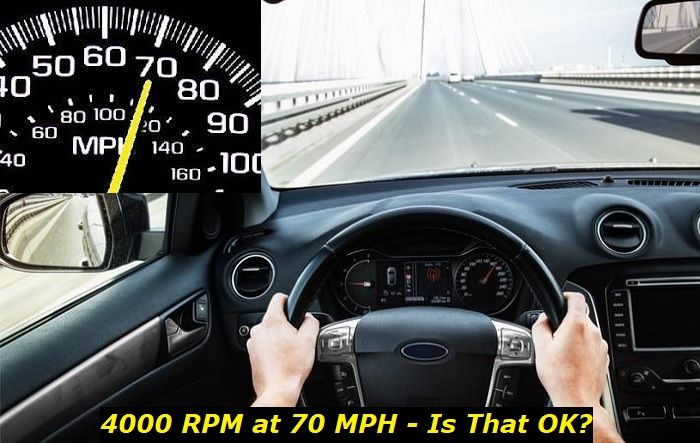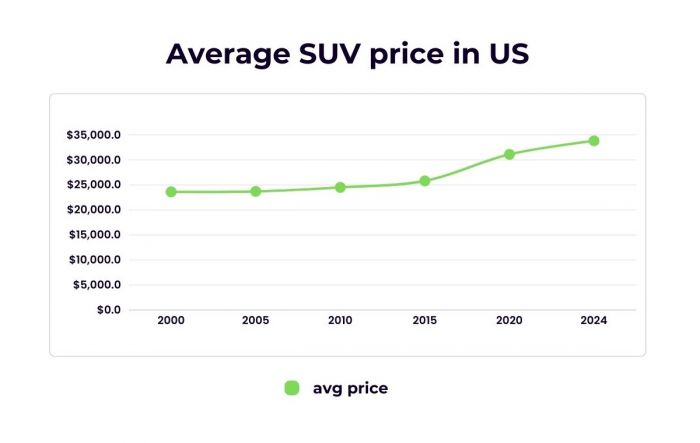To make your vehicle look better, you may consider buying larger rims. 20-inch rims will look great on the majority of modern SUVs. The compact-size SUV like the Rogue or the CR-V or a big sedan like the Passat or the Fusion will obviously get a much better-looking appearance with 20-inch rims. But are they legal? And how will they affect the gas mileage?
Actually, larger rims will affect your gas mileage in a wrong way and you will have to pay more for gas. Also, it's legal in some states and countries while in others it may be illegal, so additional investigation is needed for the local laws and rules. But there is one more big concern - the health of the suspension, transmission, and engine in your car.
.jpg)
Let's see what larger wheels may lead to!
Legal issues for 20-inch wheels
In some states and some other countries, you may be fined for using the rims of the wrong size. Each car model has a certain range of wheel and tire sizes that are OK to use. For example, the Fiesta came with 14, 15, and 16-inch rims depending on the trim, version, and market. It means that all these rims are legal to use in any country with the Fiesta.
But if your vehicle doesn't have a certain rim size on its list, you should check the local rules and restrictions. Otherwise, the next safety check may end up with a fine or other penalty.
One of the sections of Cararac.com is devoted to wheel sizes - you may check it out and see which kinds of rims were used standard in different trims of your car model.
Gas mileage and bigger rims - any connection?
Yes, bigger rims actually affect the gas mileage. Energy.gov even tells us in one of the articles, fully devoted to the connection of tire size and gas consumption, that tires can change fuel consumption and gas emissions by up to 30%. To me, this sounds crazy but the source is too reputable to ignore it.
Actually, the bigger rims can change the fuel consumption (decrease it) because of several factors:
- they are much heavier than your standard rims and it takes your engine more power to rotate them;
- larger rim diameter means that the wheel circumference is bigger, so it will take more power for your car to accelerate;
- larger wheels are usually wider, which makes the resistance higher, so the vehicle will spend more power on driving.
There is only one situation when the consumption may be actually lower with larger rims - highway driving. When you are driving on a highway, the large rim makes fewer rotations per minute to achieve a certain speed. So, at 50 MPH, the larger rim will rotate slower than the smaller rim. It means that the engine will need to rev at lower RPM potentially economizing a couple of drops of fuel per mile.
But the most important thing is that those larger rims are heavier and wider than your standard rims, so the overall fuel economy will decrease meaning that you will have to pay more for gas.
What about other impacts of larger 20-inch rims?
Well, if your car model has a 20-inch rim size among the standard sizes that were used by the manufacturer, there is nothing you should worry about. But if you want to install a 20-inch rim on a car that has never been equipped with such wheel sizes, you are putting your vehicle at risk.
The problem is that the car just wasn't tested with this wheel size and no one knows how it will react. Also, you don't know which parameters you should choose in terms of rim width and offset.
This can lead to some problems:
- wheel mount damage - larger and heavier rim may eventually destroy the wheel bolts or studs;
- suspension problems - the large rim may change the position of your car on the road changing the normal work of suspension parts such as arms and coils;
- body damage - a large rim may just not fit into the dedicated place and when you turn, it may damage the body parts;
- transmission damage is very possible since the gearbox will take a much higher load than it's made for;
- engine may also struggle to survive since it will be much more loaded than usual;
- you may feel your car getting pretty sluggish and the steering may become much stiffer;
- also, the steering rack and power steering may be damaged much faster than you expect.
So, a lot of things may happen if you decide to put 20-inch rims on a vehicle that was never tested with such wheel sizes.
Also, if a guy on a random forum reports that he used 20-inch wheels on a Focus for years and everything was fine, you should know that this is not a really trusted source, so get some more information before you decide to invest in this modification.
Personally, I don't recommend switching to poorly checked rim sizes. This will affect your gas mileage and will gradually destroy pretty expensive parts and units in your car. While it only gives visual benefits, it doesn't sound good to me to spend several thousand dollars to make your vehicle less reliable. But of course, you may have other opinions that you are welcome to express in the comments below!
About the authors
The CarAraC research team is composed of seasoned auto mechanics and automotive industry professionals, including individuals with advanced degrees and certifications in their field. Our team members boast prestigious credentials, reflecting their extensive knowledge and skills. These qualifications include: IMI: Institute of the Motor Industry, ASE-Certified Master Automobile Technicians; Coventry University, Graduate of MA in Automotive Journalism; Politecnico di Torino, Italy, MS Automotive Engineering; Ss. Cyril and Methodius University in Skopje, Mechanical University in Skopje; TOC Automotive College; DHA Suffa University, Department of Mechanical Engineering






Add comment